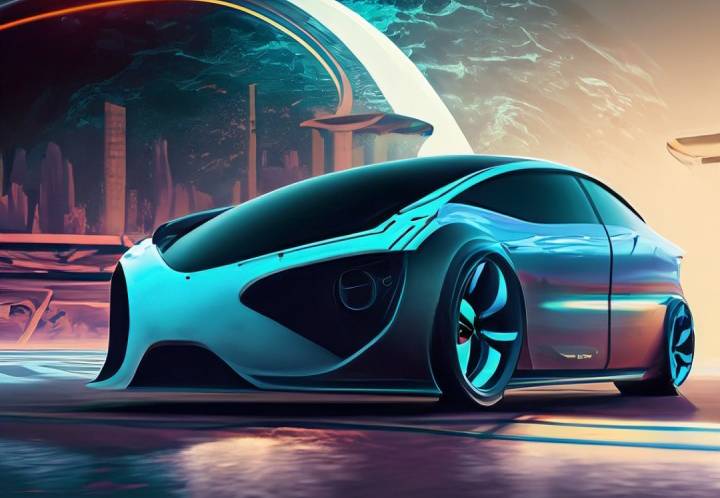In the ever-evolving landscape of transportation, one innovation is paving the way for a cleaner, greener future: electric vehicles (EVs). These sleek, energy-efficient machines are not just changing the way we drive; they’re revolutionizing the entire automotive industry. Join us as we explore the exciting journey of electric vehicles and how they are reshaping the roads of tomorrow.
Table of Contents
| Sr# | Headings |
|---|---|
| 1. | The Rise of Electric Vehicles |
| 2. | Advantages of Electric Vehicles |
| 3. | Overcoming Challenges |
| 4. | Government Initiatives and Incentives |
| 5. | Technological Innovations |
| 6. | Impact on the Environment |
| 7. | Infrastructure Development |
| 8. | Consumer Adoption and Trends |
| 9. | Economic Implications |
| 10. | The Future Outlook |
1. The Rise of Electric Vehicles
Electric vehicles have gained significant traction in recent years, with major automakers investing heavily in their development. From compact city cars to luxurious SUVs, EVs come in various shapes and sizes, catering to diverse consumer needs.
2. Advantages of Electric Vehicles
One of the key advantages of electric vehicles is their environmental friendliness. Unlike traditional gasoline-powered cars, EVs produce zero emissions, reducing air pollution and combating climate change. Additionally, EVs offer lower operating costs and require less maintenance, making them more cost-effective in the long run.
3. Overcoming Challenges
Despite their numerous benefits, electric vehicles face challenges such as limited range and long charging times. However, advancements in battery technology and the expansion of charging infrastructure are addressing these issues, making EVs more practical and convenient for everyday use.
4. Government Initiatives and Incentives
Governments around the world are incentivizing the adoption of electric vehicles through subsidies, tax credits, and rebates. These initiatives aim to accelerate the transition to cleaner transportation and reduce reliance on fossil fuels.
5. Technological Innovations
The electric vehicle industry is continuously evolving, with ongoing research and development leading to breakthroughs in efficiency, performance, and safety. From improved battery technology to autonomous driving features, EV manufacturers are pushing the boundaries of innovation.
6. Impact on the Environment
By replacing gasoline-powered cars with electric vehicles, we can significantly reduce greenhouse gas emissions and mitigate the adverse effects of climate change. Electric vehicles play a crucial role in transitioning towards a more sustainable and eco-friendly transportation system.
7. Infrastructure Development
The widespread adoption of electric vehicles requires a robust charging infrastructure. Governments, businesses, and utility companies are collaborating to expand charging networks, making it easier for EV owners to recharge their vehicles conveniently.
8. Consumer Adoption and Trends
Consumer interest in electric vehicles is on the rise, driven by growing awareness of environmental issues and advancements in EV technology. As more models become available and charging infrastructure improves, we can expect to see a surge in EV adoption in the coming years.
9. Economic Implications
The shift towards electric vehicles has significant economic implications, ranging from job creation in the clean energy sector to reduced reliance on imported oil. Furthermore, transitioning to electric transportation can stimulate economic growth and innovation in related industries.
10. The Future Outlook
As technology continues to advance and consumer preferences shift towards sustainability, the future of automobiles is undeniably electric. Electric vehicles are poised to become the norm rather than the exception, leading us towards a cleaner, greener future.
Conclusion
In conclusion, electric vehicles represent a transformative force in the automotive industry, offering a sustainable solution to our transportation needs. By embracing electric mobility, we can pave the way for a cleaner, healthier planet.
FAQs about Electric Vehicles
- What is the range of electric vehicles?
- The range of electric vehicles varies depending on the model, but many modern EVs can travel over 200 miles on a single charge.
- How long does it take to charge an electric vehicle?
- Charging times vary based on the charging infrastructure and battery capacity, but fast chargers can replenish EV batteries to 80% capacity in as little as 30 minutes.
- Are electric vehicles more expensive than traditional cars?
- While the upfront cost of electric vehicles may be higher, they offer lower operating costs and potential savings on fuel and maintenance over time.
- Can electric vehicles be charged at home?
- Yes, many electric vehicle owners charge their cars at home using a standard electrical outlet or dedicated charging station.
- What is the environmental impact of electric vehicles?
- Electric vehicles produce zero tailpipe emissions and reduce greenhouse gas emissions compared to gasoline-powered cars, contributing to cleaner air and a healthier environment.






GIPHY App Key not set. Please check settings